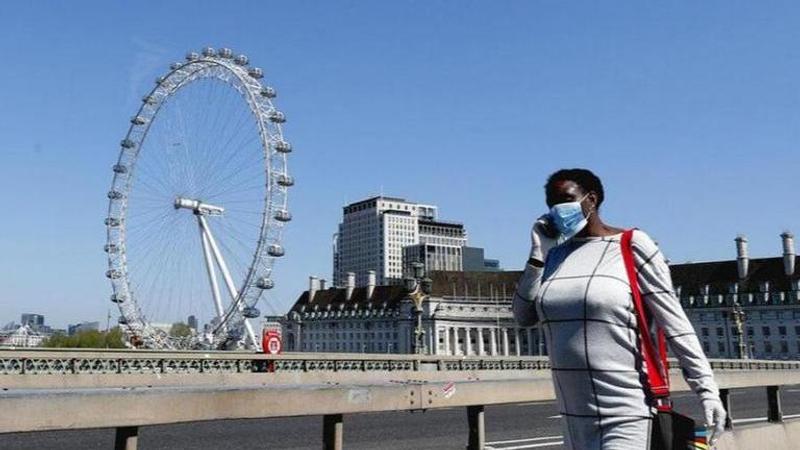Published 18:31 IST, December 16th 2020
London enters highest COVID-19 alert as UK reviews other lockdown tiers
The UK government is reviewing the tiered lockdown allocations for different parts of the country as scheduled by law on Wednesday, even as millions of more people in and around London moved into the highest alert level of Tier 3 coronavirus restrictions after a worrying spike in infections.

The UK government is reviewing the tiered lockdown allocations for different parts of the country as scheduled by law on Wednesday, even as millions of more people in and around London moved into the highest alert level of Tier 3 coronavirus restrictions after a worrying spike in infections.
With the addition of the UK capital and surrounding areas of Essex and Hertfordshire to Tier 3, or near-complete lockdown, around 61 percent of England's population is now living under the toughest lockdown rules which impose a ban on inter-household mingling indoors and closure of all restaurants and bars except for takeaways and deliveries.
“The number of COVID-19 cases in London has increased significantly over the past two weeks and we continue to experience the highest case rates of anywhere in the country,” said Professor Kevin Fenton, London Regional Director for Public Health England.
We are now in a situation of exponential growth which, if left unchecked, would lead to a rapid escalation in cases and hospitalizations that could overwhelm our NHS (National Health Service) services over the festive period and into the New Year. Whilst no-one wants to see London under tighter restrictions, the stark reality of the situation means we have no choice, he said.
The outcome of a review of the tiers for other parts of the country is expected to be announced on Thursday.
Medical experts have raised concerns over the government’s exemption for a so-called Christmas bubble to allow up to three households to meet up over the festive period under looser restrictions between December 23 and 27.
UK Housing Secretary Robert Jenrick laid some speculation over a reversal of that policy to rest when he urged the public to use their own judgment on who to see over that five days period.
"You can come together as three families and bubble for up to five days – but I suspect many, many people across the country will choose to do less than that to protect themselves, their loved ones and broader society," the Cabinet minister told the BBC.
An information campaign is expected to be launched in the days running up to the five-day bubble to urge restraint and caution days after UK Health Secretary Matt Hancock informed Parliament about a new variant of coronavirus that is the likely cause behind the faster spread of the deadly virus in some parts of the country.
In a joint editorial, the ‘British Medical Journal’ and ‘Health Service Journal’ stressed that the demand on the NHS was increasing and the new strain identified in England and Wales has introduced “further potential jeopardy".
However, the government has resisted what would be perceived as a cancellation of Christmas as it maintained a UK-wide approach for the festive period.
All four nations of the United Kingdom – England, Scotland, Wales, and Northern Ireland – agreed to keep the exemption in place but will be tightening the messaging around the five-day lockdown leeway being offered.
The government has pointed to several measures being put in place, including a targeted testing drive is being rolled out for secondary school and college students in parts of north-east London, Essex, and Kent after the fastest rise in infections was noted within the 11 and 18 year age group.
And from January 2021, every secondary school and college in England will have access to rapid coronavirus testing.
Students will be eligible for daily testing for seven days if they are identified as a close contact of someone who has tested positive. Under current guidelines, up to a whole school bubble has to self-isolate if one student or staff member tests positive. From January, those in the same bubble do not need to self-isolate if they agree to be tested once a day.
“This huge expansion of rapid testing for those working in education is a milestone moment in our work to keep schools and colleges open for all,” said UK Education Secretary Gavin Williamson.
Testing on this scale brings real benefits to education, it means more children, teachers, and staff can stay in their classes in schools and colleges without the need to self-isolate, he said.
The announcements come in a week of considerable back and forth between the education department and local authorities after schools were forced to stay open amid some councils wanting to close down earlier than planned for Christmas to keep a check on infection rates.
Meanwhile, passengers arriving into England are being offered the option to pay for a private test and potentially shorten their self-isolation as the government’s Test to Release strategy for international arrivals went live this week.
Available as an option for all passengers arriving into England by plane, ferry, or train who have been in a non-exempt location in the past 10 days, the move will ensure that passengers who receive a negative result on or after day five can immediately finish self-isolation, but must continue following the current domestic rules in their local area.
It comes as a further 506 people in the UK died within 28 days of testing positive for COVID-19, bringing the total death toll to 64,908.
(IMAGE CREDITS:AP)
Updated 18:31 IST, December 16th 2020




